Which nations have qualified in women's wrestling for Paris Olympics
Thursday, May 9, 2024 - 09:13 By Eric Olanowski

PARIS, France (May 9) -- The ultra-competitive and uber-emotional final stage of the Paris Olympic Qualifiers is set to take place in Istanbul, Turkiye, May 9-12.
After next week’s Battle on the Bosporus -- which is the sixth and final event on the Olympic qualification calendar -- all 288 tickets to Paris 2024 will be booked and the nations wrestling in Paris will be set.
Breakdown of quotas allocations for Paris 2024:
- World Championships = 30 freestyle, 30 women’s wrestling and 30 Greco-Roman = 90 quotas
- Continental Olympic Qualifiers (x4 continents) = 12 freestyle, 12 women’s wrestling and 12 Greco-Roman = 36
- World Olympic Qualifier = 18 freestyle, 18 women’s wrestling and 18 Greco-Roman = 54
- Total = 96 freestyle, 96 women’s wrestling and 96 Greco-Roman = 288 wrestlers in Paris
It’s worth noting, and as you’ll see below, the induvial wrestler who earns the ticket to the Olympic Games does not own the right to compete in Pairs. Ultimately, it’s the National Olympic Committee / country who selects their entry for the Games.
For example: David TAYLOR (USA), through his world-title winning performance in Belgrade, punched the United States’ ticket at 86kg. But after going through their Olympic Trails, and with Taylor falling in the finals, the Stars and Stripes will send Aaron BROOKS (USA) to Paris at 86kg.
Over the last 288 days, wrestles have gone through two of three stages vying for their opportunity to earn their nation’s berth to Pairs.
The beginning stages of the qualification process took place last September at the 2023 World Championships, in Belgrade, Serbia, where there was a total of 90 quotas up for the taking. Wrestlers who won a medal--gold, silver or bronze (x2)-- earned a ticket for their country.
Additionally, the two losers of the bronze-medal matches faced off in an Olympic playoff match, determining the fifth allocation in Belgrade.
Then came the Continental Olympic Qualifiers, where 36 quotas per continent were handed out.
Those athletes who reached the finals of their respective weight classes at the Pan-American, African & Oceania, European and Asian Olympic Qualifiers booked their nation’s ticket to Paris.
Now, after traveling through Belgrade, Acapulco, Alexandria, Baku and Bishkek, we’ve reached Istanbul for the “Last Chance Qualifier.”
There will be a slight adjustment to the number of allocations given in Istanbul, where in addition to the finalists earning berths to Paris, there will be an Olympic playoff between the winners of the bronze-medal matches to determine the final entries for the Olympic Games.
The draws for the World Olympic Qualifier will take place on May 8, with wrestling beginning the following day. Greco-Roman will compete live on UWW+ on May 9-10, women’s wrestling on May 10-11 and freestyle on May 11-12.
Here are the women’s wrestling nations that have qualified for the Paris Olympics before the start of the World Olympic Qualifier (May 9-12).
50kg
From World Championships
Japan (Yui SUSAKI)
Mongolia (Otgonjargal DOLGORJAV)
China (Ziqi FENG)
United States (Sarah HILDEBRANDT)
Turkiye (Evin DEMIRHAN)
From Pan-Am OG Qualifier
Colombia (Alisson CARDOZO REY)
Cuba (Yusneylis GUZMAN LOPEZ)
From African & Oceania OG Qualifier
Egypt (Nada MOHAMED)
Algeria (Ibtissem DOUDOU)
From European OG Qualifier
Ukraine (Oksana LIVACH)
Nadezhda SOKOLOVA as Individual Neutral Athlete
From Asian OG Qualifier
Uzbekistan (Aktenge KEUNIMJAEVA)
India (Vinesh VINESH)
From World Olympic Qualifier
Germany (Anastasia BLAYVAS)
DPR Korea (Son hyang KIM)
Azerbaijan (Mariya STADNIK)
53kg
From World Championships
Japan (Akari FUJINAMI)
Vanesa KALADZINSKAYA as Individual Neutral Athlete
ANTIM for Indian Olympic Association
Ecuador (Lucia YEPEZ)
Sweden (Jonna MALMGREN)
From Pan-Am OG Qualifier
United States (Dominique PARRISH)
Venezuela (Betzabeth AGUELLO)
From African & Oceania OG Qualifier
Nigeria (Christianah OGUNSANYA)
Guam (Mia AQUINO)
From European OG Qualifier
Romania (Andreea ANA)
Natalia MALYSHEVA as Individual Neutral Athlete
From Asian OG Qualifier
China (PANG Qianyu)
DPR Korea (Hyogyong CHOE)
From World Olympic Qualifier
Mongolia (Khulan BATKHUYAG)
Moldova (Mariana DRAGUTAN)
Turkiye (Zeynep YETGIL)
57kg
From World Championships
Japan (Tsugumi SAKURAI)
Moldova (Anastasia NICHITA)
United States (Helen MAROULIS)
Nigeria (Odunayo ADEKUOROYE)
Poland (Anhelina LYSAK)
From Pan-Am OG Qualifier
Canada (Hannah TAYLOR)
Ecuador (Luisa VALVERDE)
From African & Oceania OG Qualifier
Algeria (Chaimaa AOUISSI)
Guam (Rckaela AQUINO)
From European OG Qualifier
Germany (Sandra PARUSZEWSKI)
Iryna KURACHKINA as Individual Neutral Athlete
From Asian OG Qualifier
China (Kexin HONG)
India (Anshu ANSHU)
From World Olympic Qualifier
Olga KHOROSHAVTSEVA as Individual Neutral Athlete
Brazil (Giullia OLIVEIRA)
Italy (Aurora RUSSO)
62kg
From World Championships
Kyrgyzstan (Aisuluu TYNYBEKOVA)
Japan (Sakura MOTOKI)
Norway (Grace BULLEN)
Ukraine (Iryna KOLIADENKO)
Germany (Luisa NIEMESCH)
From Pan-Am OG Qualifier
United States (Kayla MIRACLE)
Canada (Ana GODINEZ)
From African & Oceania OG Qualifier
Nigeria (Esther KOLAWOLE)
Tunisia (Siwar BOUSETA)
From European OG Qualifier
Bulgaria (Bilyana DUDOVA)
Alina KASABIEVA as Individual Neutral Athlete
From Asian OG Qualifier
DPR Korea (Hyon Gyong MUN)
Mongolia (Orkhon PUREVDORJ)
From World Olympic Qualifier
Turkiye (Nesrin BAS)
Romania (Kriszta INCZE)
Veranika IVANOVA as Individual Neutral Athlete
68kg
From World Championships
Turkiye (Buse TOSUN)
Mongolia (Delgermaa ENKHSAIKHAN)
Moldova (Irina RINGACI)
France (Koumba LARROQUE)
Japan (Ami ISHII)
From Pan-Am OG Qualifier
Venezuela (Soleymi CARABALLO)
United States (Amit ELOR)
From African & Oceania OG Qualifier
Nigeria (Blessing OBORUDUDU)
New Zealand (Tayla FORD)
From European OG Qualifier
Poland (Wiktoria CHOLUJ)
Khanum VELIEVA as Individual Neutral Athlete
From Asian OG Qualifier
DPR Korea (Sol Gum PAK)
Kyrgyzstan (Meerim ZHUMANAZAROVA)
From World Olympic Qualifier
China (Feng ZHOU)
India (Nisha NISHA)
Canada (Linda MORAIS)
76kg
From World Championships
Japan (Yuka KAGAMI)
Kyrgyzstan (Aiperi MEDEY KYZY)
United States (Adeline GRAY)
Colombia (Tatiana RENTERIA)
Cuba (Milaimys MARIN)
From Pan-Am OG Qualifier
Canada (Justina DI STASIO)
Ecuador (Genesis REASCO)
From African & Oceania OG Qualifier
Nigeria (Hannah RUEBEN)
Tunisia (Zaineb SGHAIER)
From European OG Qualifier
Hungary (Bernadett NAGY)
Turkiye (Yasemin ADAR)
From Asian OG Qualifier
India (Reetika REETIK)
China (Juan WANG)
From World Olympic Qualifier
Romania (Catalina AXENTE)
Bulgaria (Yuliana YANEVA)
Mongolia (Davaanasan ENKH AMAR)



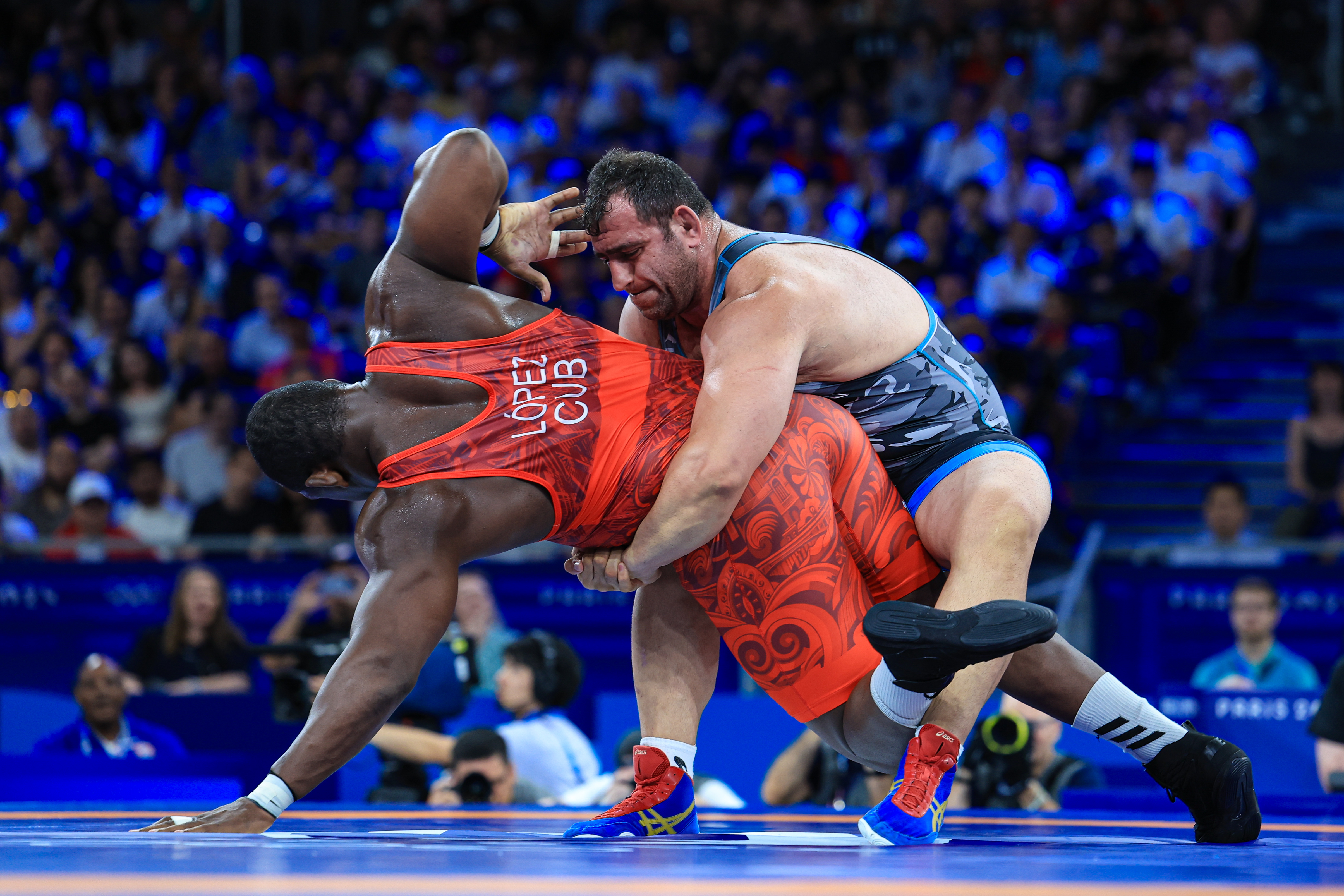
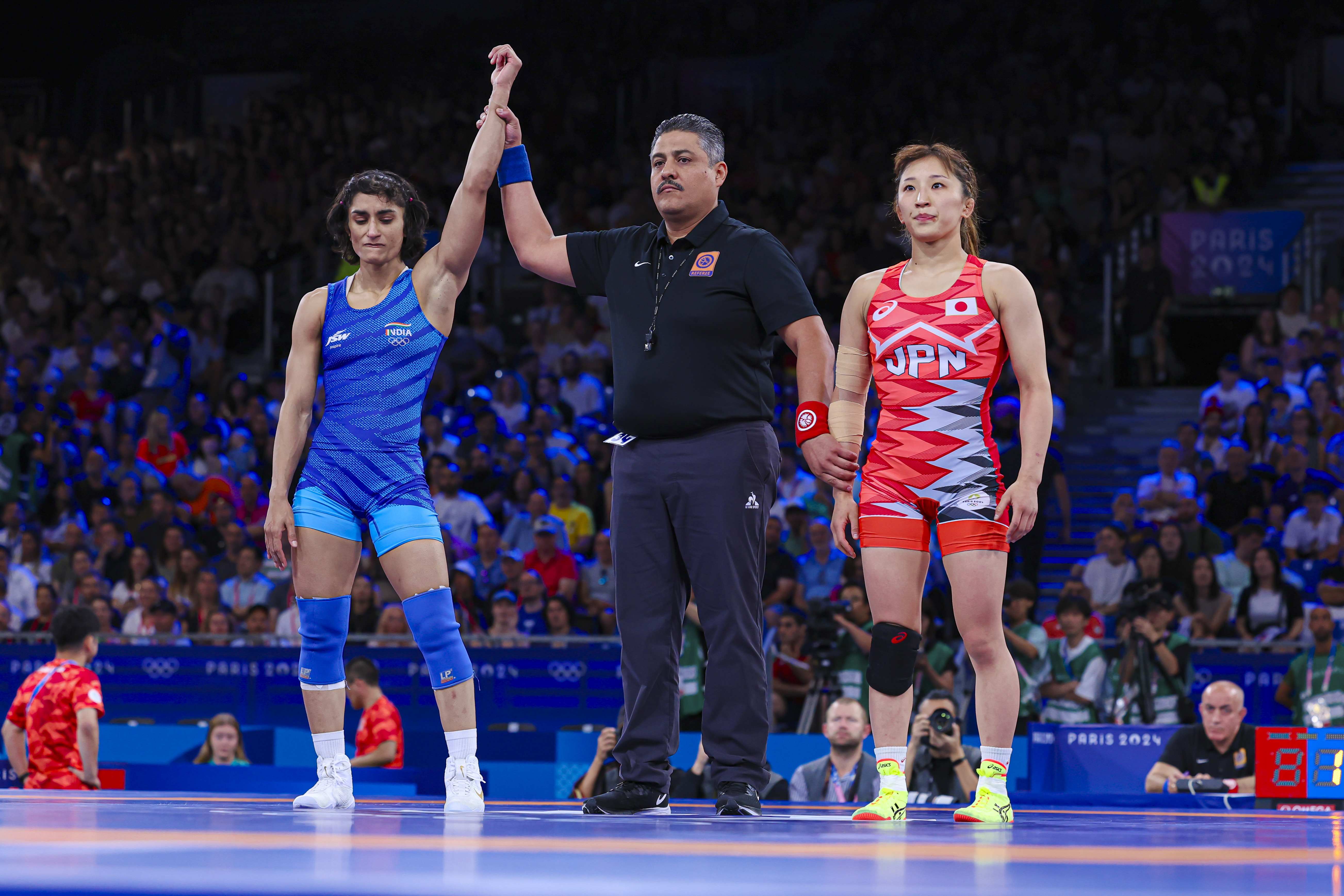
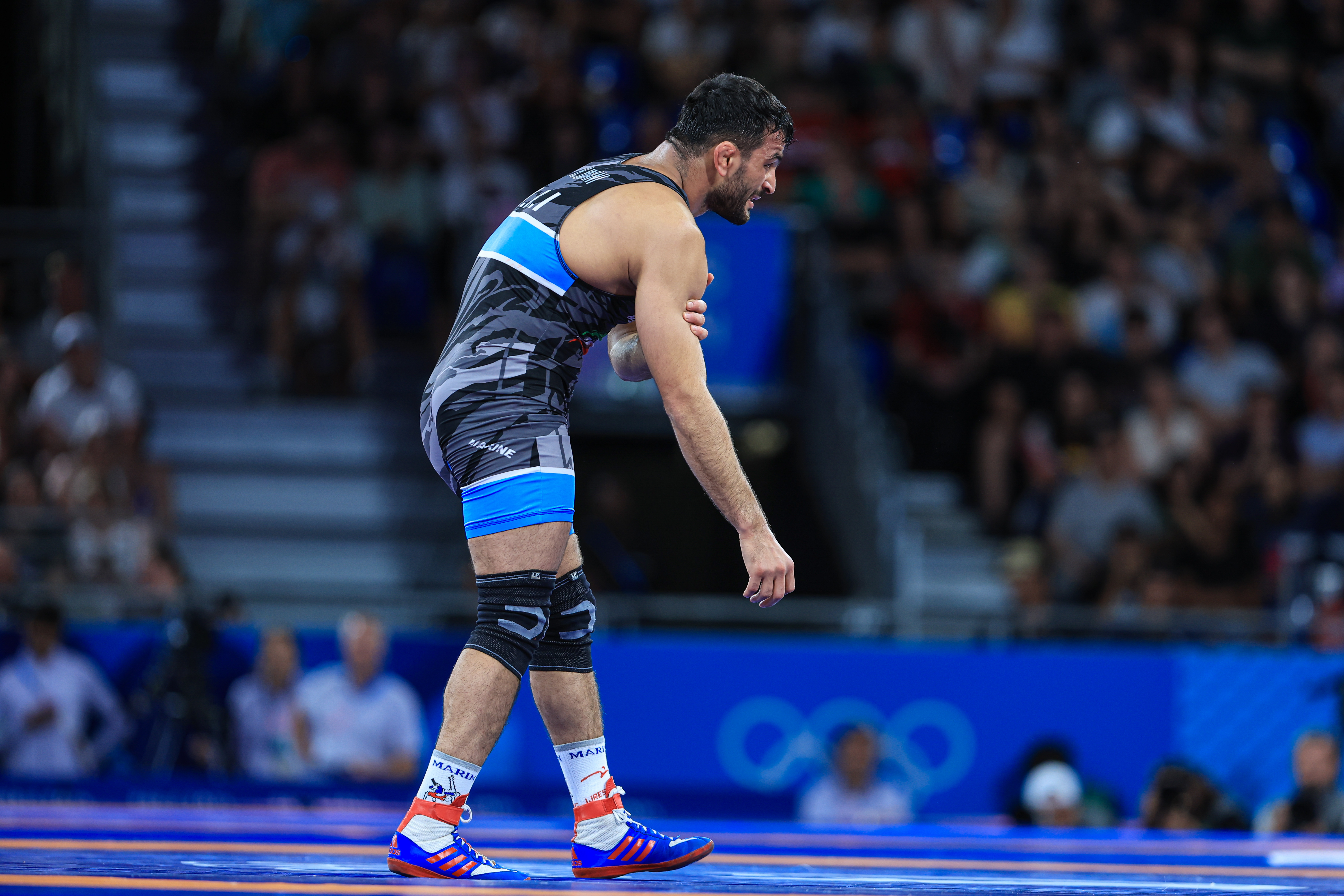




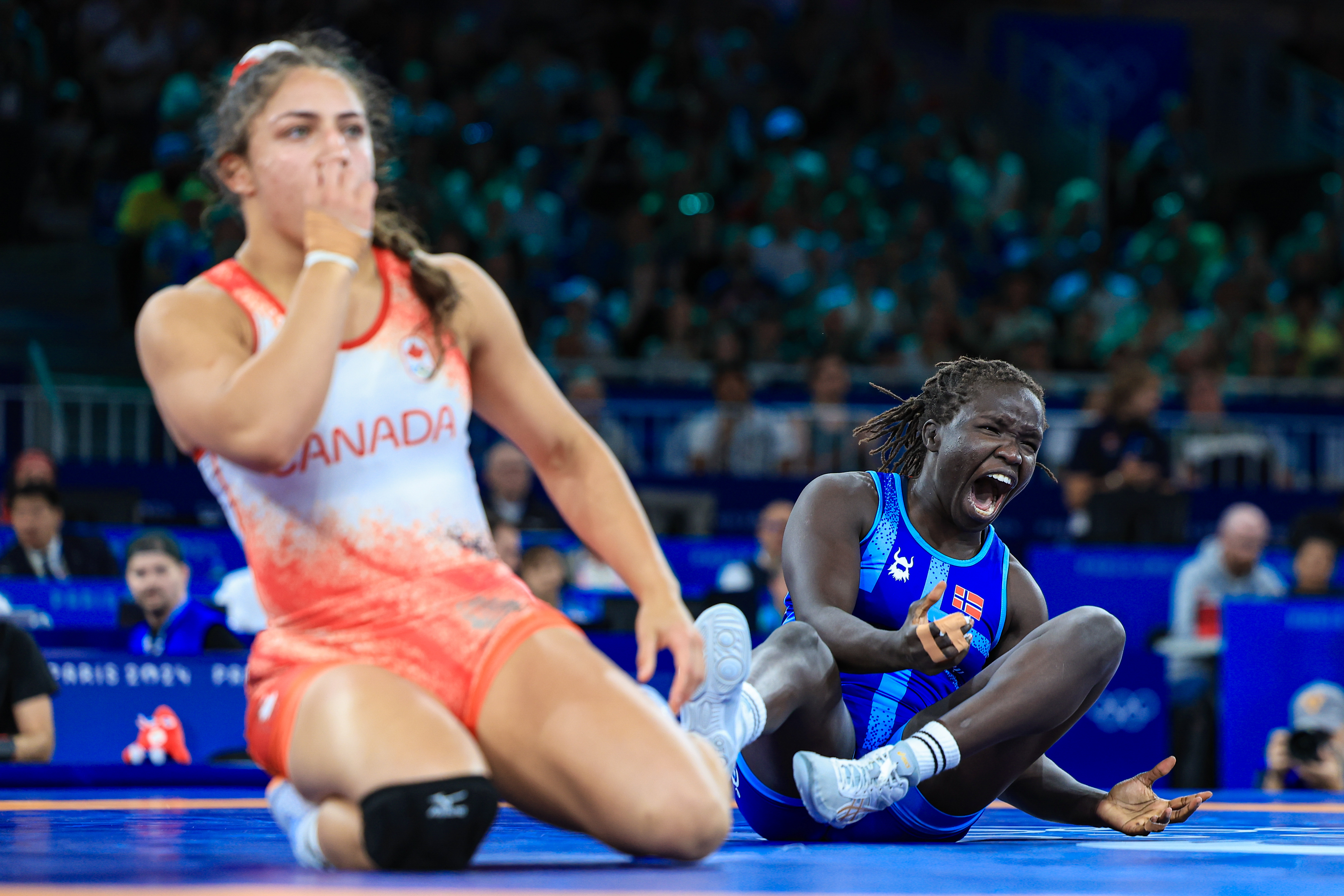


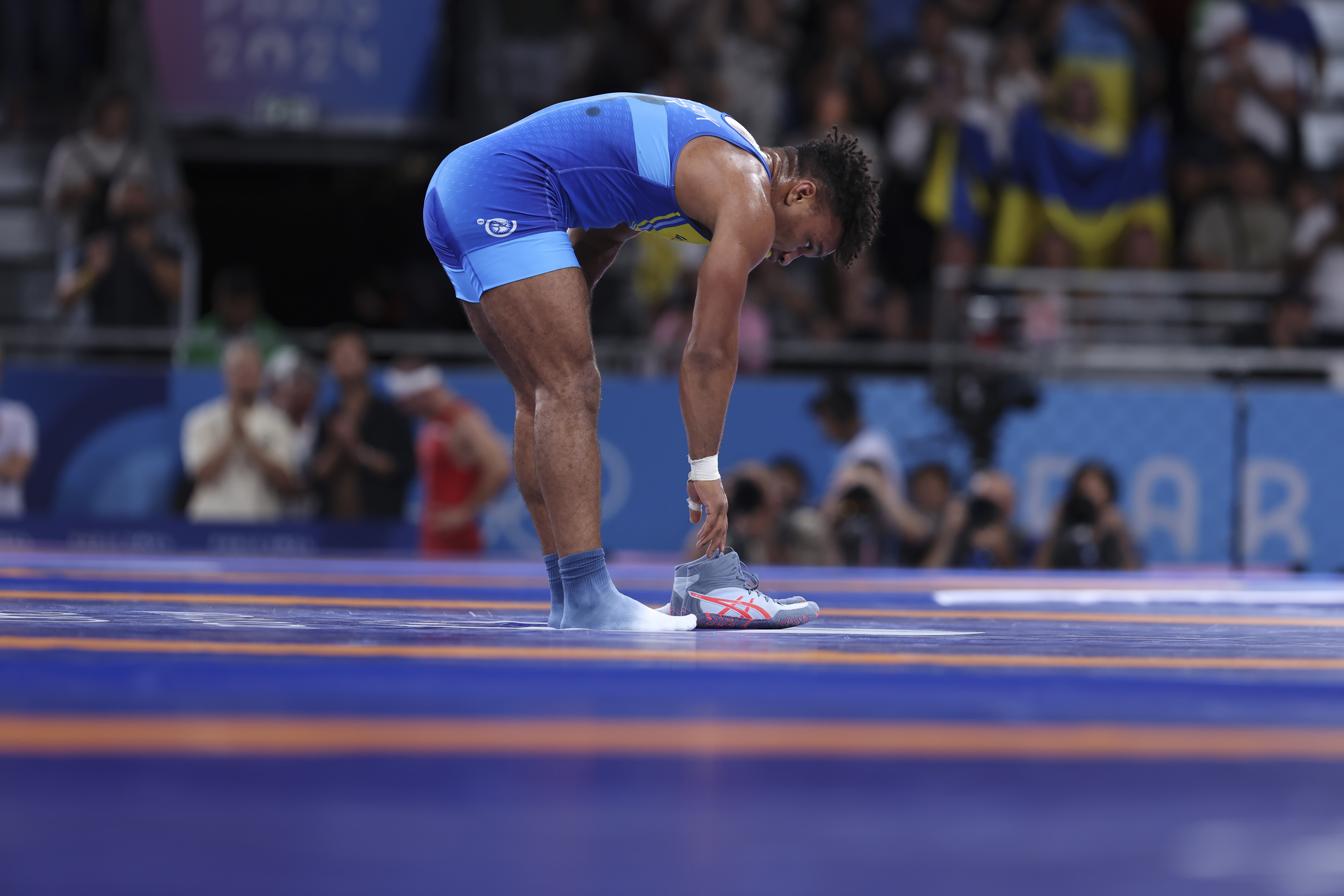
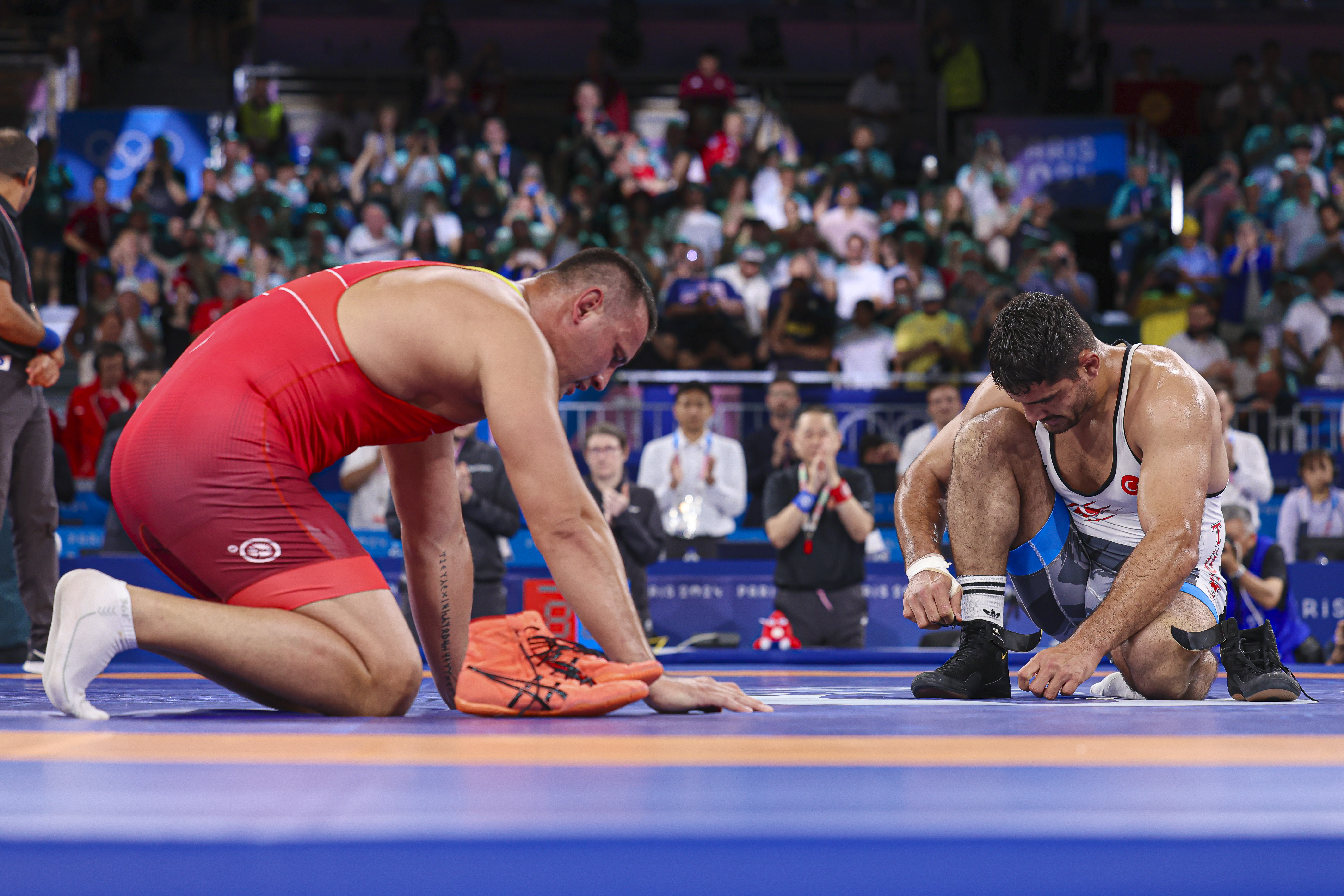
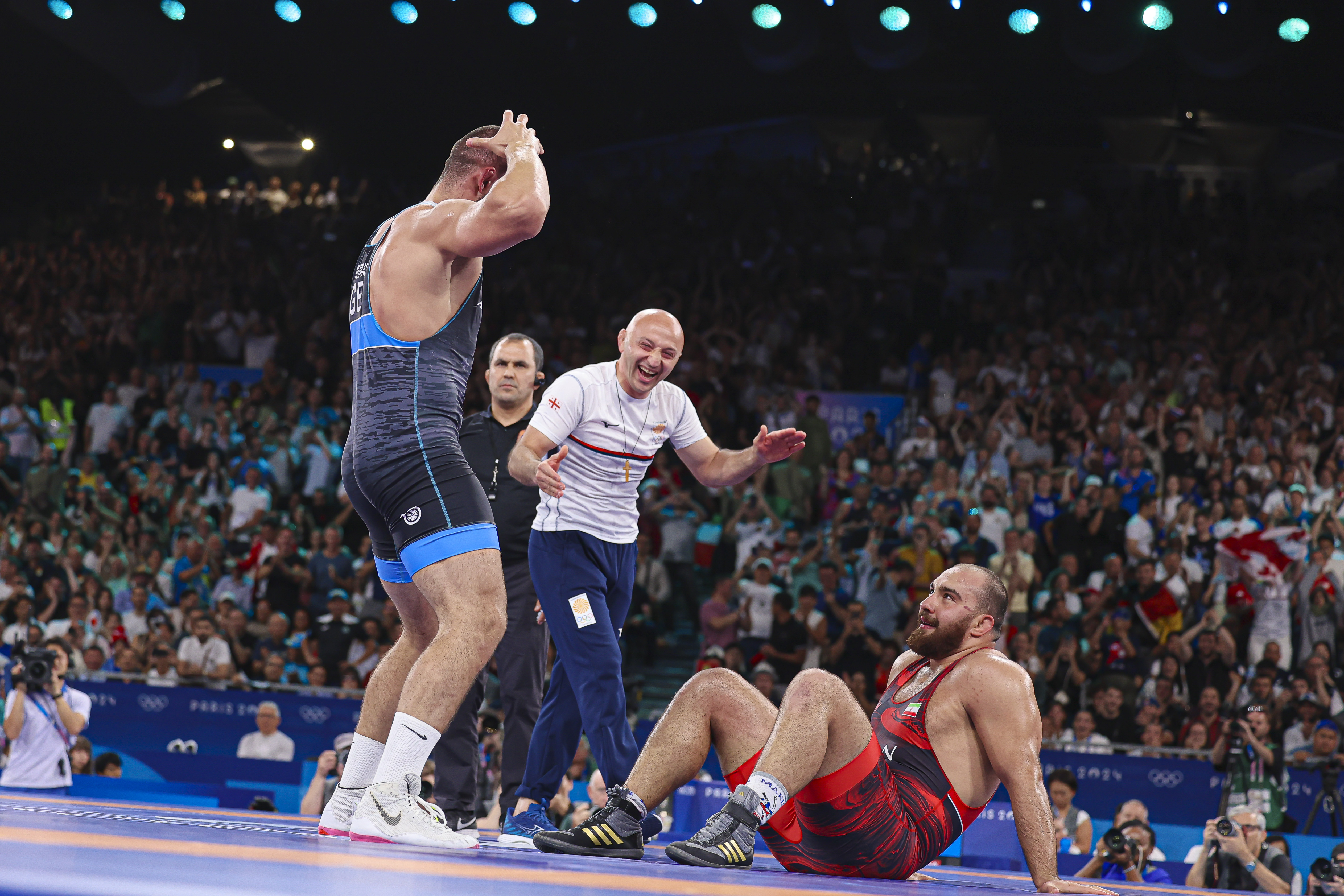

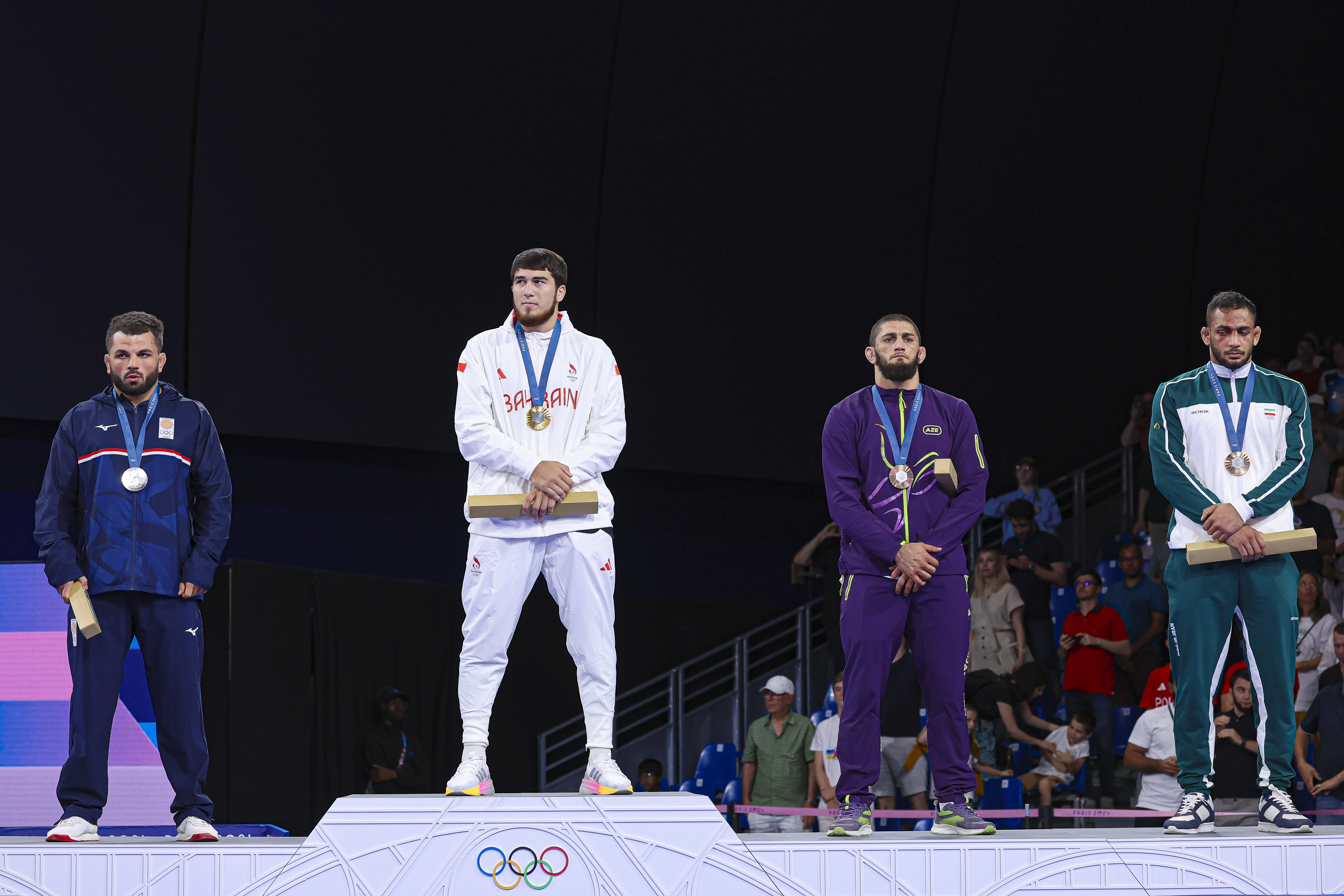


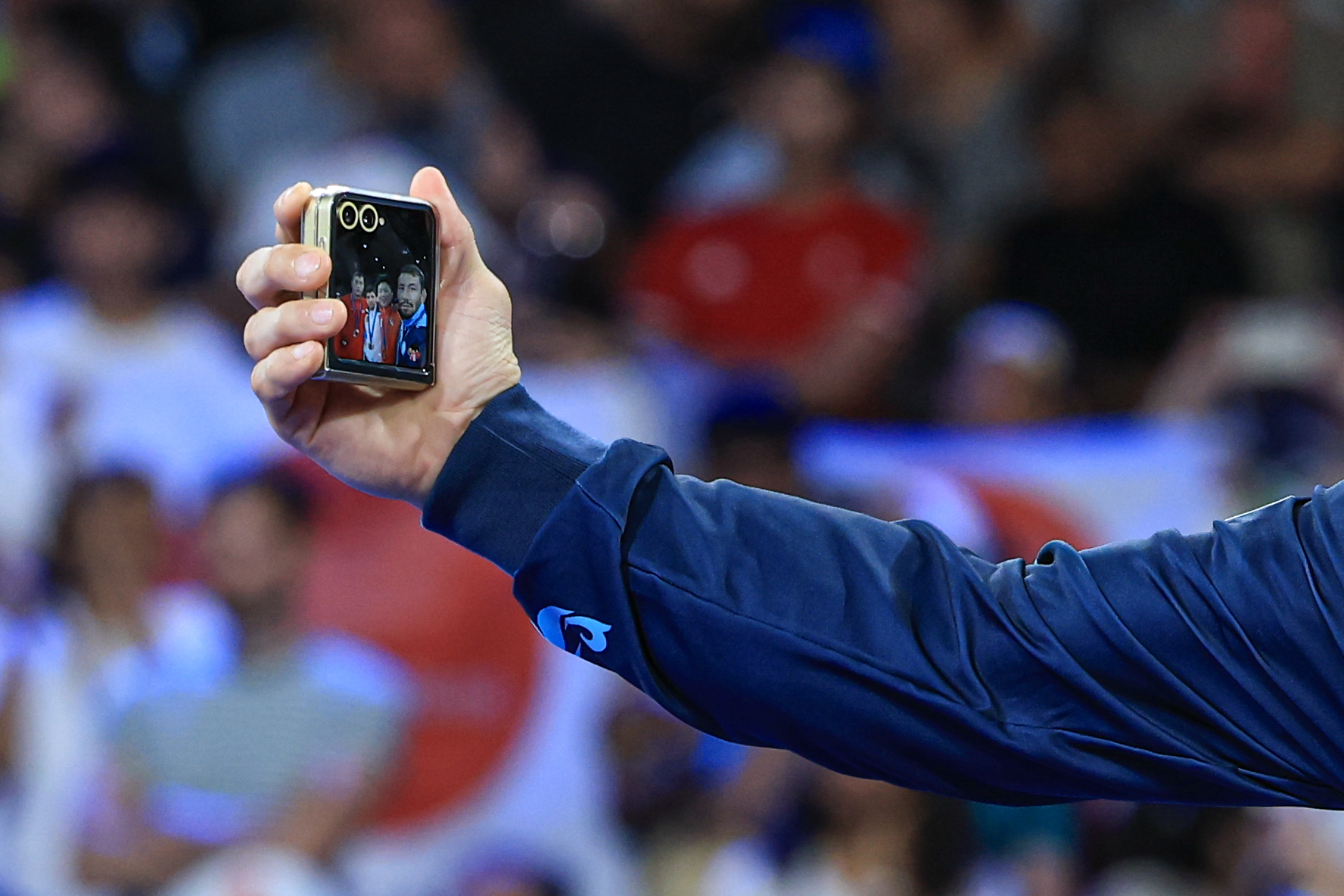
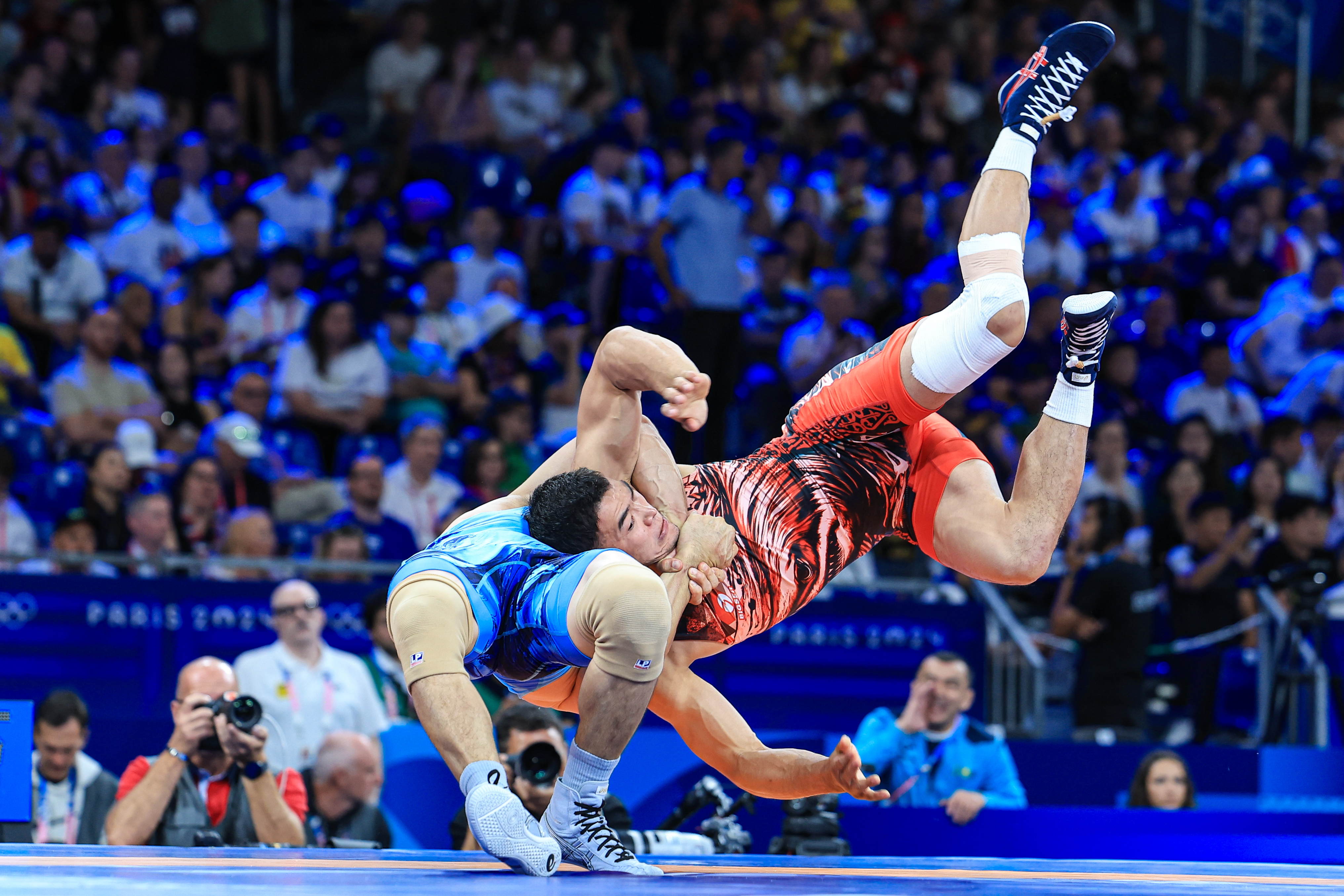

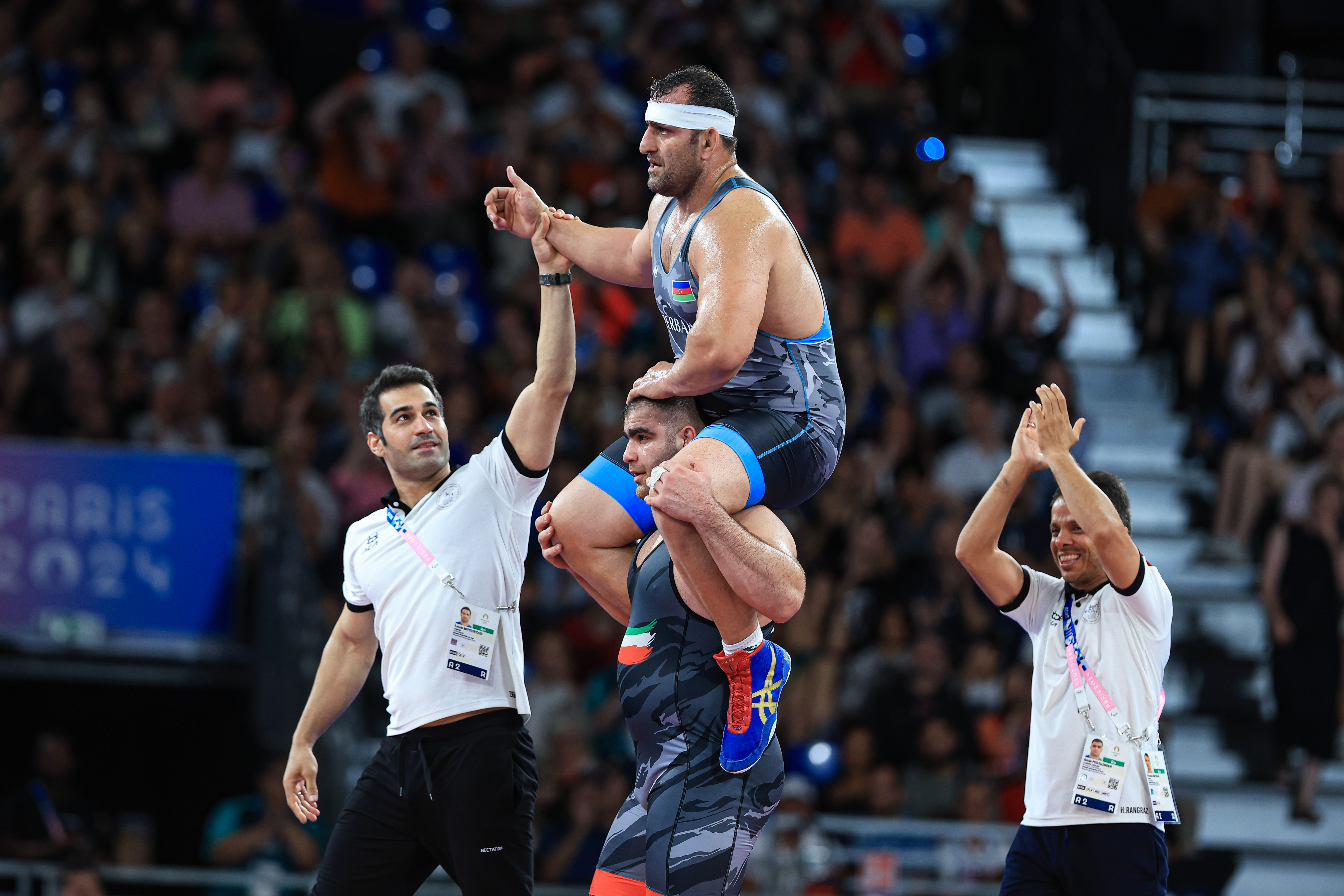


Share your thoughts.
Comments